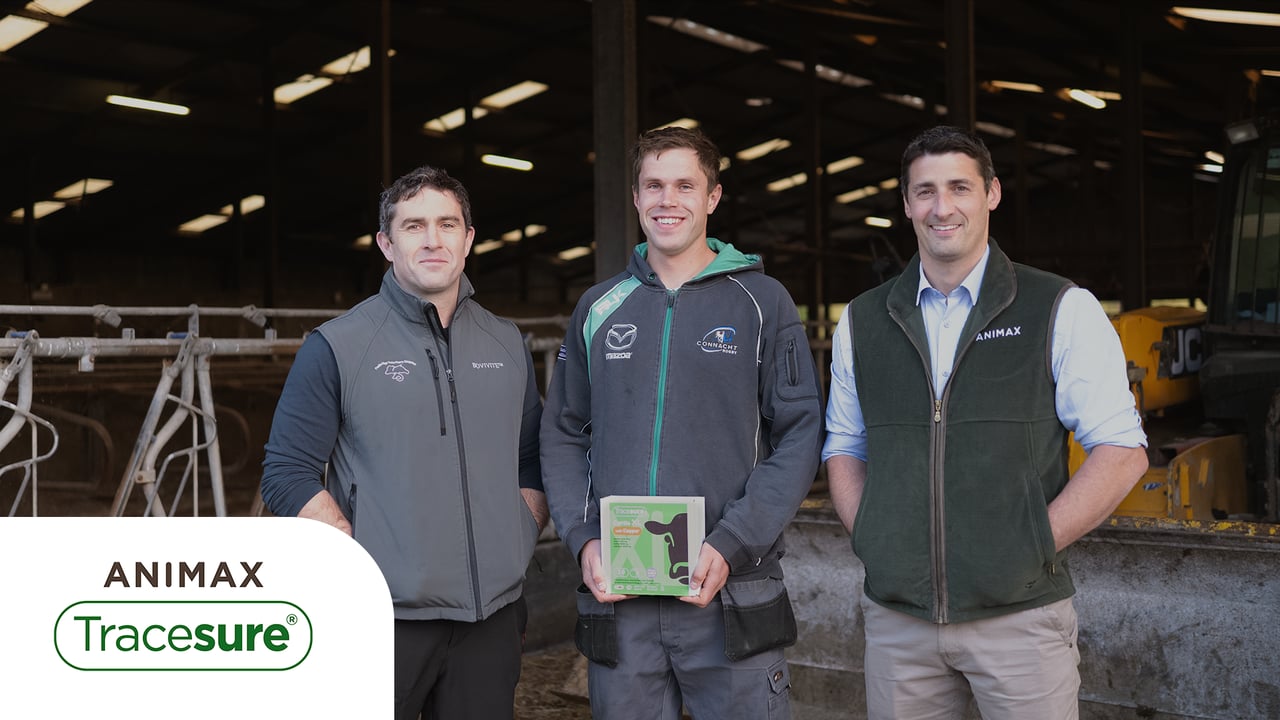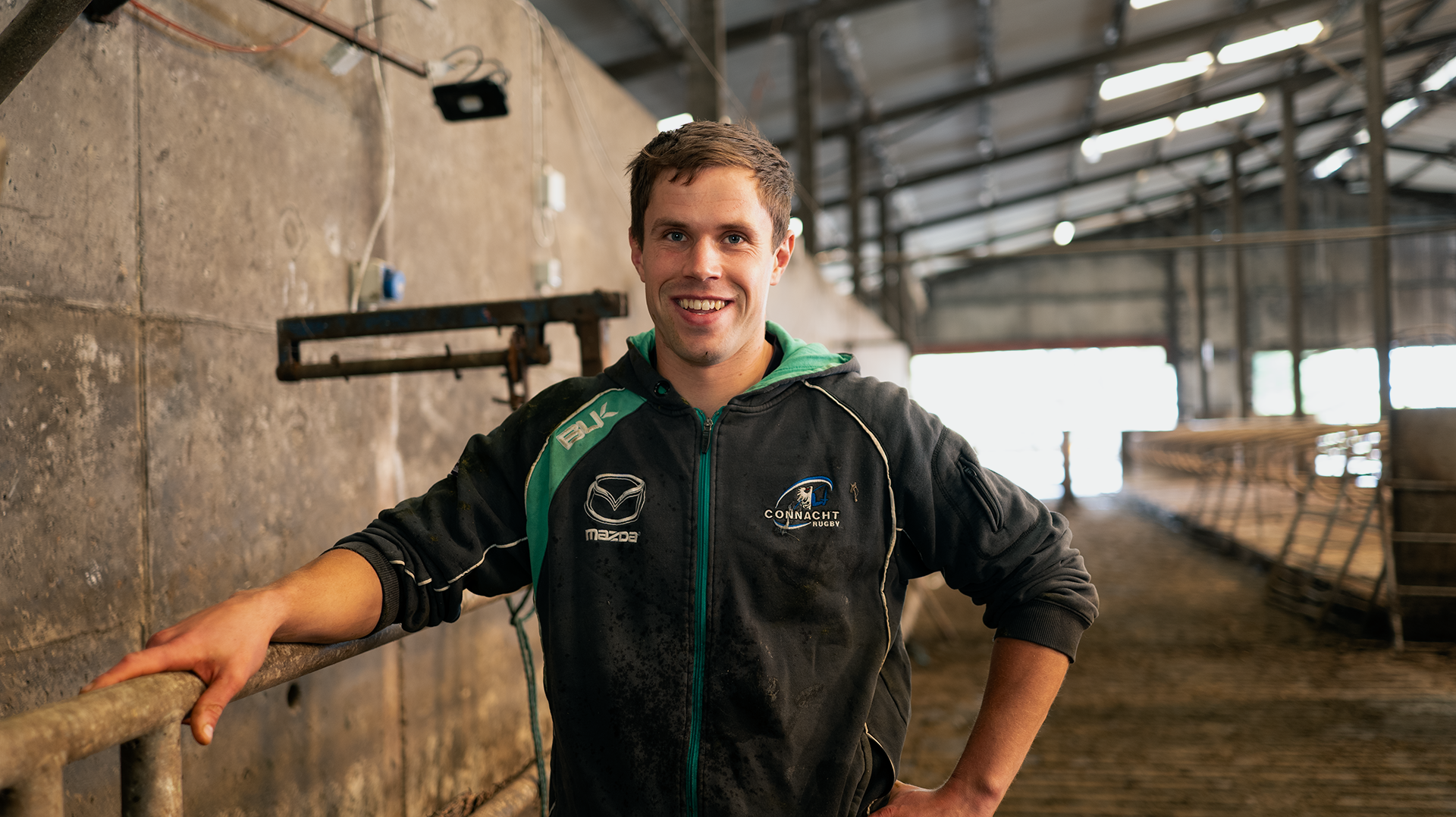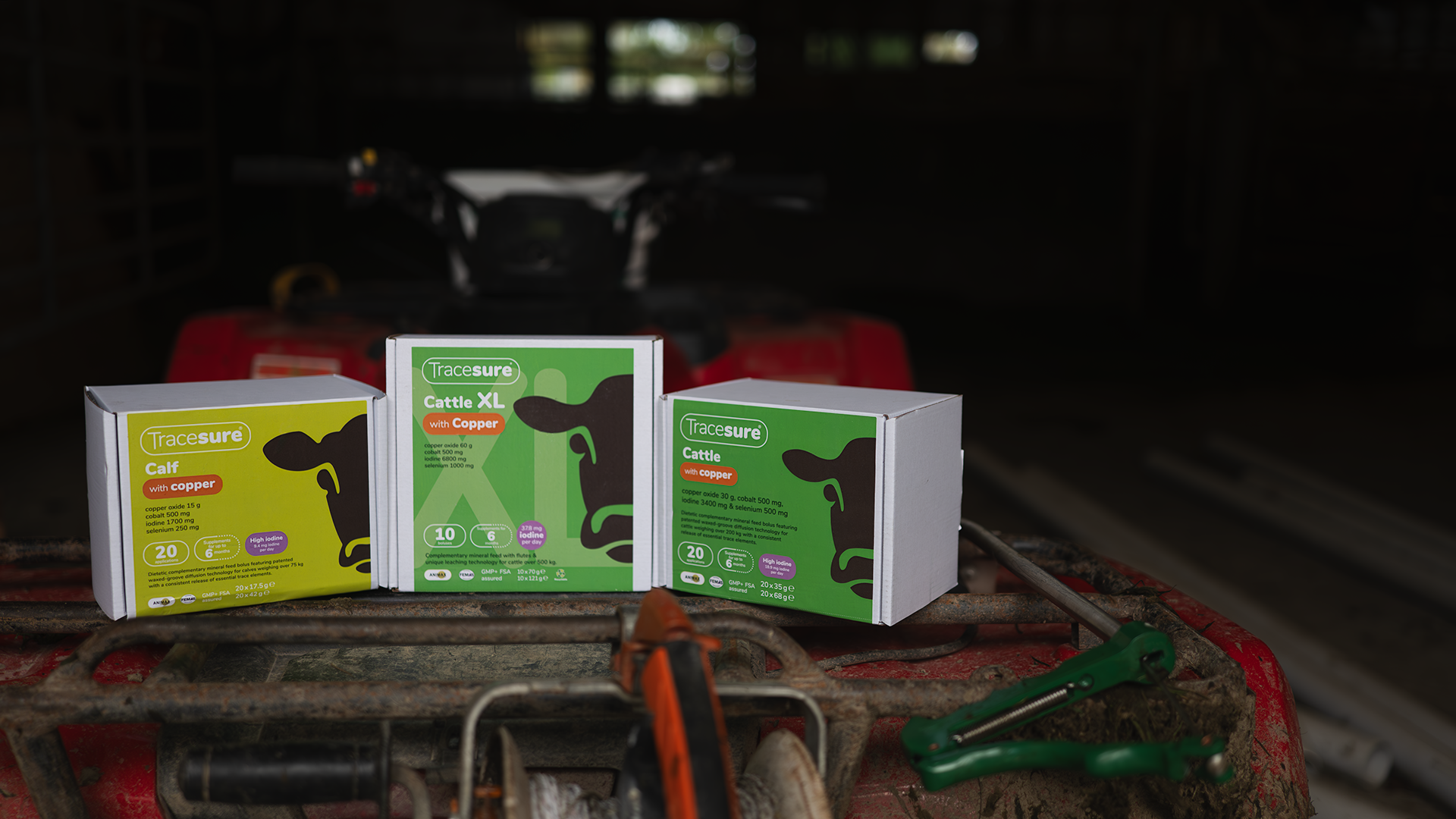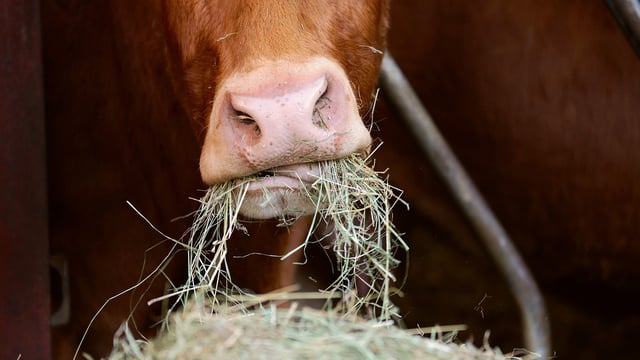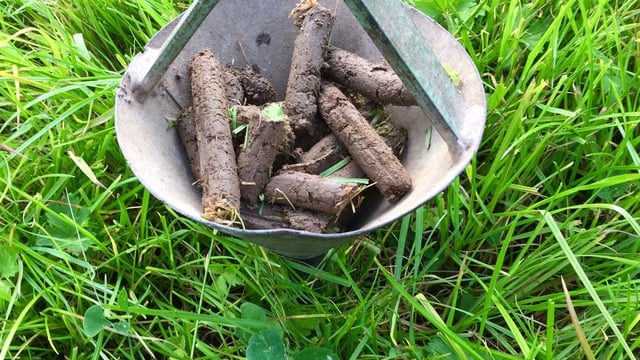Sponsored Article

Sponsored Article
Watch: Proven fertility boost on Cork spring calving farm
Sponsored Article

A proven fertility boost has been demonstrated on the farm of Ben Ridgeway near Clonakilty, Co. Cork, where he milks 230 crossbred, spring calving cows.
For the past three years, production has averaged between 500 and 520kg of milk solids across the herd.
This level of performance is achieved from exceptionally high-quality grazed grass, silage and approximately 800kg of meals per cow.
The herd is managed in order to secure the highest possible levels of milk output from grazed grass.
Cow and heifer fertility is extremely high at the present time, but that wasn’t always the case.
According to Ben: "Up to four years ago, fertility had been an issue within the herd.
“I knew there was a fundamental issue impacting on the cows. So, working with my vet, the decision was taken to have a high proportion of the animals blood sampled and their trace element levels accurately assessed.
“The results that came back confirmed extremely low levels four key minerals. These were: copper, cobalt, selenium and iodine.
“In a number of cases the concentrations detected were verging on clinical deficiency levels.”
“The decision was then taken to bolus the cows to readdress the trace element deficiency. It was agreed that the Tracesure Cattle XL best suited our needs."
He continued: "We went ahead on that basis and have never looked back. Fertility levels within the herd immediately improved.
“The boluses are applied twice yearly: in the run up to drying-off and prior to the breeding season.
“Delivering the trace elements that cows and heifer need prior to calving ensures that calves are born with lots of vigour, colostrum quality is excellent and metabolic problems; including retained cleanings, milk fevers and ketosis; have been kept to an absolute minimum.
“Tracesure boluses can be easily placed in the animal’s rumen, and they remain active for a full, six-month period.”
Ben works closely with his veterinarian, Howard Kenny, from Faxbridge Veterinary in Clonakilty.
It was their close collaboration that led to the confirmation of the trace element challenge on the Ridgeway farm in the first place.
“Trace element deficiencies are a differential diagnosis for us when looking at reduced herd fertility levels. Trace element deficiencies are also associated with issues around calving, from retained foetal membranes, still births, poor calf performance and the onset of metabolic problems in freshly calved cows.”
“But it’s a case of knowing the facts. In Ben’s case several of the cows were blood sampled and a forage analysis was carried out and subsequently analysed.
“It was on analysing the information from both of these tests that we identified copper and selenium deficiencies in the cows along with the possibility of cobalt and iodine deficiencies due to low levels in the forage analysis," Howard explained.
Howard is strongly urging dairy farmers to contact their veterinary surgeons and have a similar process followed where cases of poor herd fertility and issues around calving time have arisen.
“Once it was identified that a trace element deficiency could be potentially impacting the performance of the cows, using a bolus to address the problem was decided as the course of action to take.
"With individually bolusing each cow you can be confident she is getting the required supplementation needed in a highly efficient manner over a prolonged period of time.
“Ben has been using the Tracesure boluses for the past four years. Their use along with other management changes have led to a boost in herd fertility and in the general heath of the cows and calves on the farm," he continued.
Trace element deficiencies are widespread across all Irish soil types.
Commercial manager (Ireland) at Animax, Mark O'Brien, said:
“Almost all forage is short in one or more essential trace elements to satisfy the immune, digestive and reproductive needs of highly productive, lactating dairy cows.
“Under supply of these nutrients can result in costly clinical or sub-clinical health and production-related issues: over supply will lead to over excretion of these mineral into the environment and/or the creation of toxicity problems for host animals.
“Tracesure boluses work to deliver the required balance of trace mineral over a full, six-month period.”
Making all of this work is a combination of two unique technologies.
Tracesure boluses feature unique patented diffusion technology for a controlled release and low risk of premature passing.
In practical terms, this means that rumen fluid is allowed to enter the blouses and displace the trace minerals into the rumen.
The diffusion gradient created allows the trace elements to be released over time in a wholly controlled manner.
Significantly, Tracesure boluses also retain their full size over time. This prevents the premature passing of the bolus from the rumen.
In contrast, dissolving or eroding boluses will break up over time. This process increases the risk of regurgitation.
In addition, any reduction in size of the bolus may enhance the rate at which trace elements are dispersed into the rumen.
“Tracesure boluses now feature grooves coated with natural beeswax, providing a partial barrier that regulates release.
“The outer wax starts to wear off within the first day of the bolus being administered into the reticulum, beginning the process of trace element release.
“However, the wax remains in the grooves up to two months, in order to further ensure a consistent and safe release by regulating the surface area exposed to rumen fluid," O'Brien explained.
“Specifically where copper is concerned, Tracesure boluses contain copper oxide needles that are manufactured to a pharmaceutical standard by Animax”
“Tracesure boluses have a proven track record under Irish conditions.
“The reality is trace mineral deficiencies constitute a challenge on every dairy and livestock farm.
“Members of the Animax team are available to advise on how best the Tracesure boluses can be used to help deliver optimal levels of production and animal health standards," he added.
| Northern Ireland | Neill Archeson | +44 (0) 7795 434 986 | Neill.acheson@anim ax-vet.com |
| West Ireland | Flor Ryan | +353 (0) 86 811 5560 | [email protected] |
| East Ireland | Mark O'Brien | +353 (0) 87 063 5950 | [email protected] |
| South Ireland | Damien Storan | +353 (0) 87 463 9951 | [email protected] |
Email: [email protected]
Call: +44 (1) 1359 252 181
Sponsored Article


